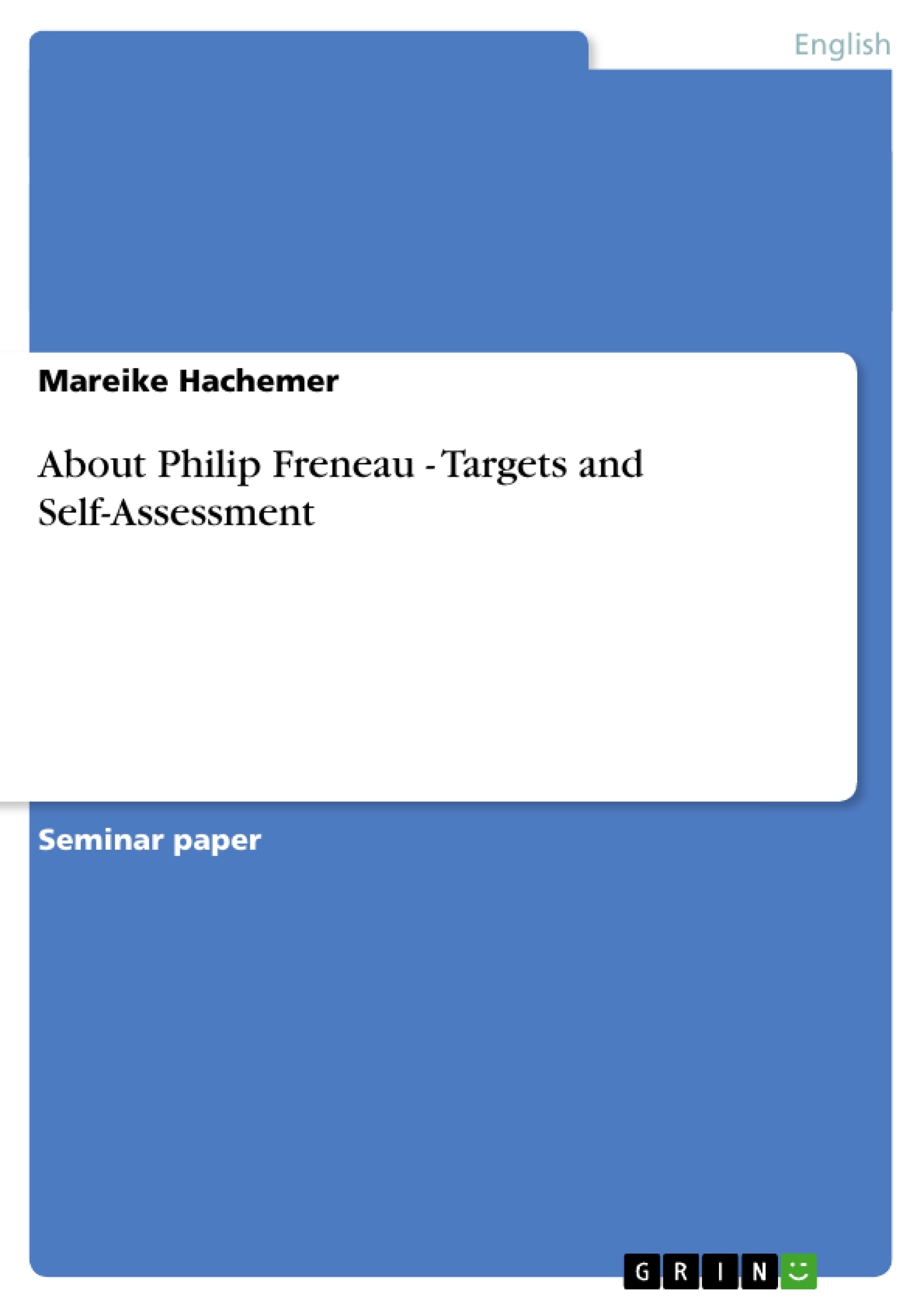Philip Freneau was one of the most discussed poets of the late eighteenth century. On one hand he was celebrated as the “Poet of the American Revolution” (Eberwein 191) or the “Father of American Poetry” (Stauffer 52), a journalist of influence, a patriot and skilful writer, on the other hand he was forgotten for a long time. How did Philip Freneau see himself? What were his targets and how did he try to reach them?
This paper examines Freneau’s look on his role as an author on his poetry and plans. What kind of influences affected or promoted his career? Regarding his own poems “To an Author”, “The City Poet” and “To a New England Poet” his description of an author’s life – and therefore his life – will become apparent.
Furthermore, a closer look on his contemporaries, the Connecticut Wits, especially Dwight, Barlow and Bryant will display how independent and original Freneau’s writing was, and what kind of relationships he had towards these American authors.
At the same time his relationship towards British poets is interesting: He thought he rejected most of their writing; but was he really not influenced by them at all? Could it be that he sometimes even copied parts of their work?
After having a short look on other intertextual influences like Greek mythology, verses from the Bible and Classic forms, this paper will look back on his life in a retrospective way and analyse his attitude towards himself. Did Freneau manage to reach his goals or did he lose sight of them?
Inhaltsverzeichnis (Table of Contents)
- Introduction
- Freneau's Self-Assessment
- Freneau's Readers
- “Advice to Authors” and “To an Author”
- Freneau's Contemporary American Competitors
- Timothy Dwight
- Joel Barlow
- William Cullan Bryant
- Anne Bradstreet
- Freneau's Attitude Towards British Poets
- Intertexuality
- Reference to the Bible
- The Last Poems: A Reflection on His Life
- Conclusion
Zielsetzung und Themenschwerpunkte (Objectives and Key Themes)
This paper explores Philip Freneau's self-perception as an author, analyzing his poetry and plans, and investigating the influences that shaped his career. The paper examines his life and how he viewed his role as an author, drawing on his poems "To an Author", "The City Poet", and "To a New England Poet". It also analyzes his relationships with his American contemporaries, the Connecticut Wits, and his attitude towards British poets.
- Freneau's self-assessment as an author
- The influence of his contemporaries on his work
- Freneau's relationship with British poets
- The role of intertextuality in his writing
- Freneau's political and romantic poetry
Zusammenfassung der Kapitel (Chapter Summaries)
The Introduction provides an overview of Philip Freneau's life and work, highlighting his conflicting reputation as both a celebrated figure and a forgotten one. The first chapter delves into Freneau's self-perception as an author, examining his views on his role and the influences on his writing. The second chapter explores the challenges Freneau faced in finding an audience for his poetry and discusses his efforts to reach a democratic readership. The fourth chapter examines Freneau's relationship with his American contemporaries, the Connecticut Wits, including Timothy Dwight, Joel Barlow, and William Cullan Bryant, while the fifth chapter explores his attitude towards British poets.
Schlüsselwörter (Keywords)
Philip Freneau, American Poetry, American Revolution, Connecticut Wits, British Poetry, Intertexuality, Democratic Poetry, Romantic Poetry, Political Poetry, Self-Assessment, Audience, Influence.
Frequently Asked Questions
Who was Philip Freneau?
Philip Freneau was a celebrated 18th-century poet and journalist, often called the "Poet of the American Revolution" and the "Father of American Poetry."
What were Freneau's main literary targets?
His work often targeted political oppression, advocated for democratic values, and reflected on the struggles of being an author in the early United States.
How did Freneau view his role as an author?
Through poems like "To an Author," he expressed the challenges of finding an audience and the difficulties of balancing artistic integrity with political activism.
What was his relationship with the "Connecticut Wits"?
While contemporary to authors like Timothy Dwight and Joel Barlow, Freneau's writing was considered more independent and original in its democratic focus.
Was Freneau influenced by British poets?
Despite rejecting much of British literature for political reasons, his work still shows intertextual influences and stylistic echoes of British poetic forms.
- Quote paper
- Mareike Hachemer (Author), 2007, About Philip Freneau - Targets and Self-Assessment, Munich, GRIN Verlag, https://www.grin.com/document/78218



